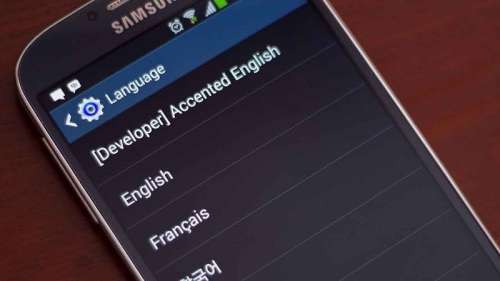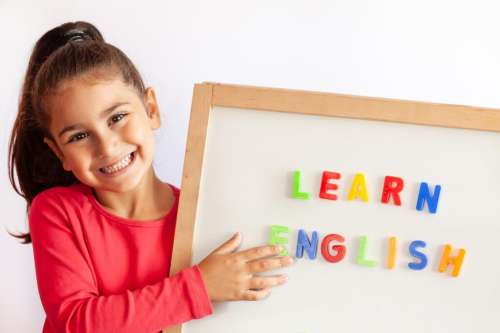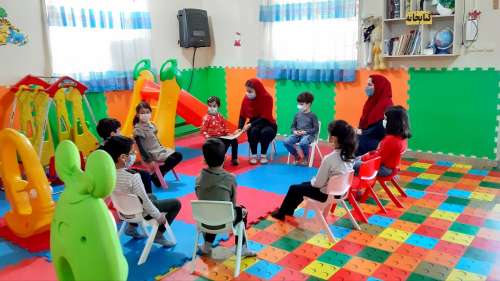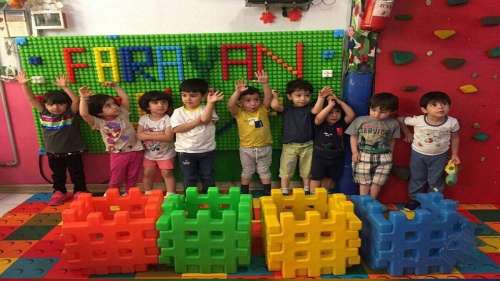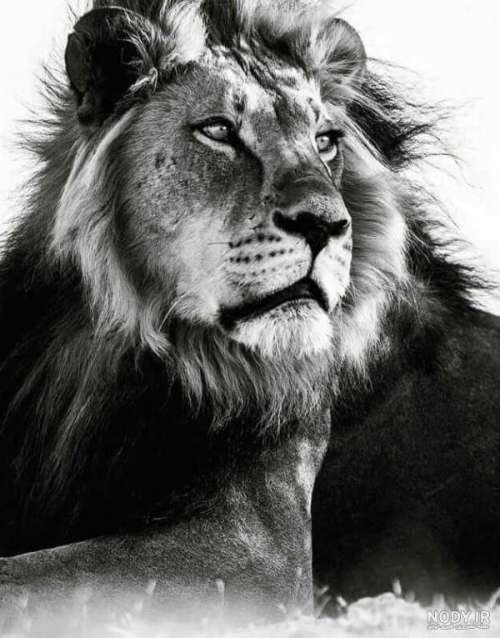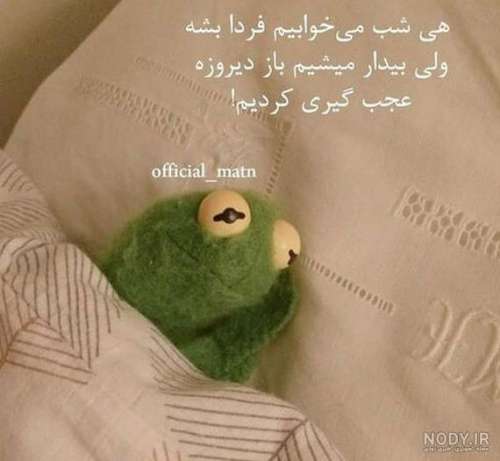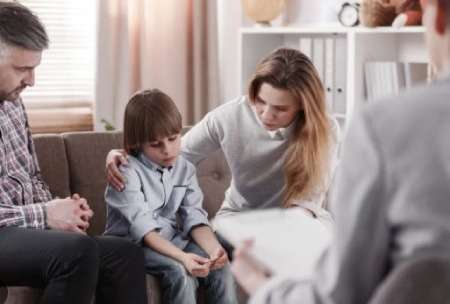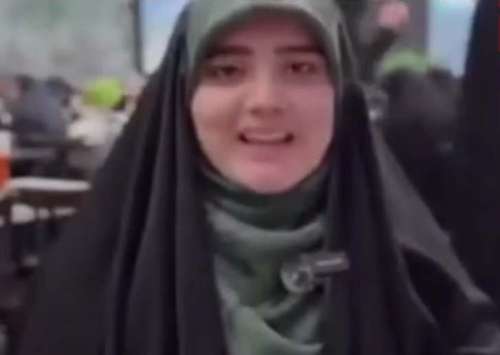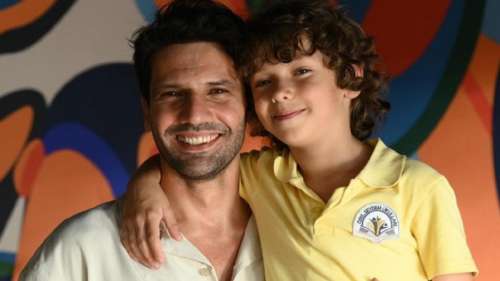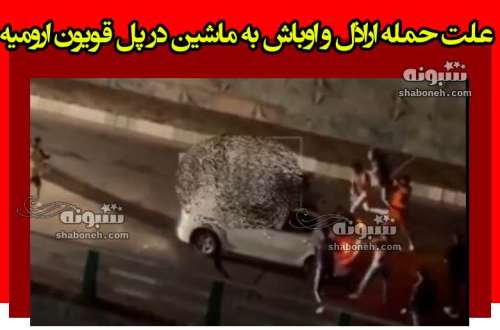در این محتوا ما سعی داریم به شما چند داستان کوتاه در انگلیسی برای آموزش زبان به کودکان مبتدی بگویم. در ادامه، 10 داستان کوتاه مناسب را برای شما آوردهام این داستان ها بهترین داستان های آموزش اخلاق به کودکان نیز می باشد.
فهرست مطالب
- The Little Red Hen (خروس کوچک قرمز):
- The Tortoise and the Hare (قورباغه و خرگوش):
- Goldilocks and the Three Bears (گلدیلاکس و سه خرس):
- The Ugly Duckling (جوجه اردک زشت):
- The Lion and the Mouse (شیر و موش):
- The Three Little Pigs (سه خرگوش کوچولو):
- The Gingerbread Man (نان شانجهای):
- The Princess and the Pea (شاهزاده و راندو):
- The Boy Who Cried Wolf (پسری که برزنی گریه کرد):
- The Rainbow Fish (ماهی قوسآسا):
The Little Red Hen (خروس کوچک قرمز):
داستانی درباره خروسی است که کارها را به تنهایی انجام میدهد و از دوستانش کمک نمیگیرد. این داستان مفهوم همکاری و تقدیر از کسانی که به ما کمک میکنند را به کودکان آموزش میدهد.
Once upon a time, there was a little red hen who lived on a farm . She was friends with a lazy dog , a sleepy cat , and a noisy yellow duck .
One day the little red hen found some seeds on the ground. The little red hen had an idea. She would plant the seeds .
The little red hen asked her friends, “Who will help me plant the seeds ?”
“Not I,” barked the lazy dog . “Not I,” purred the sleepy cat . “Not I,” quacked the noisy yellow duck .
“Then I will,” said the little red hen . So the little red hen planted the seeds all by herself.
When the seeds had grown, the little red hen asked her friends, “Who will help me cut the wheat ?”
“Not I,” barked the lazy dog . “Not I,” purred the sleepy cat . “Not I,” quacked the noisy yellow duck .
“Then I will,” said the little red hen . So the little red hen cut the wheat all by herself.
When all the wheat was cut, the little red hen asked her friends, “Who will help me take the wheat to the mill to be ground into flour ?”
“Not I,” barked the lazy dog . “Not I,” purred the sleepy cat . “Not I,” quacked the noisy yellow duck .
“Then I will,” said the little red hen . So the little red hen brought the wheat to the mill all by herself, ground the wheat into flour , and carried the heavy sack of flour back to the farm .
The tired little red hen asked her friends, “Who will help me bake the bread ?”
“Not I,” barked the lazy dog . “Not I,” purred the sleepy cat . “Not I,” quacked the noisy yellow duck .
“Then I will,” said the little red hen . So the little red hen baked the bread all by herself.
When the bread was finished, the tired little red hen asked her friends, “Who will help me eat the bread ?”
“I will,” barked the lazy dog . “I will,” purred the sleepy cat . “I will,” quacked the noisy yellow duck .
“No!” said the little red hen . “I will.” And the little red hen ate the bread all by
herself.
The Tortoise and the Hare (قورباغه و خرگوش):
داستان معروفی است که در آن قورباغه با خرگوش به یک مسابقه میپردازد. این داستان مفهوم استمراری بودن تلاش و عدم غرور را به کودکان آموزش میدهد.
A Hare was making fun of the Tortoise one day for being so slow.
“Do you ever get anywhere?” he asked with a mocking laugh.
“Yes,” replied the Tortoise, “and I get there sooner than you think. I’ll run you a race and prove it.”
The Hare was much amused at the idea of running a race with the Tortoise, but for the fun of the thing he agreed. So the Fox, who had consented to act as judge, marked the distance and started the runners off.
The Hare was soon far out of sight, and to make the Tortoise feel very deeply how ridiculous it was for him to try a race with a Hare, he lay down beside the course to take a nap until the Tortoise should catch up.
The Tortoise meanwhile kept going slowly but steadily, and, after a time, passed the place where the Hare was sleeping. But the Hare slept on very peacefully; and when at last he did wake up, the Tortoise was near the goal. The Hare now ran his swiftest, but he could not overtake the Tortoise in time.
The race is not always to the swift.
Goldilocks and the Three Bears (گلدیلاکس و سه خرس):
داستانی است که در آن دختری به خانه سه خرس وارد میشود و از چیزهای آنها استفاده میکند. این داستان مفهوم احترام به خصوصیات و مالکیت دیگران را به کودکان آموزش میدهد.
Once upon a time there were three Bears, who lived together in a house of their own, in a wood. One of them was a Little Wee Bear, and one was a Middle-sized Bear, and the other was a Great Big Bear. They had each a bowl for their porridge; a little bowl for the Little Wee Bear; and a middle-sized bowl for the Middle-sized Bear; and a great bowl for the Great Big Bear. And they had each a chair to sit in; a little chair for the Little Wee Bear; and a middle-sized chair for the Middle-sized Bear; and a great chair for the Great Big Bear. And they had each a bed to sleep in; a little bed for the Little Wee Bear; and a middle-sized bed for the Middle-sized Bear; and a great bed for the Great Big Bear.
One day, after they had made the porridge for their breakfast, and poured it into their porridge-bowls, they walked out into the wood while the porridge was cooling, that they might not burn their mouths by beginning too soon, for they were polite, well-brought-up Bears. And while they were away a little girl called Goldilocks, who lived at the other side of the wood and had been sent on an errand by her mother, passed by the house, and looked in at the window. And then she peeped in at the keyhole, for she was not at all a well-brought-up little girl. Then seeing nobody in the house she lifted the latch. The door was not fastened, because the Bears were good Bears, who did nobody any harm, and never suspected that anybody would harm them. So Goldilocks opened the door and went in; and well pleased was she when she saw the porridge on the table. If she had been a well-brought-up little girl she would have waited till the Bears came home, and then, perhaps, they would have asked her to breakfast; for they were good Bears—a little rough or so, as the manner of Bears is, but for all that very good-natured and hospitable. But she was an impudent, rude little girl, and so she set about helping herself.
First she tasted the porridge of the Great Big Bear, and that was too hot for her. Next she tasted the porridge of the Middle-sized Bear, but that was too cold for her. And then she went to the porridge of the Little Wee Bear, and tasted it, and that was neither too hot nor too cold, but just right, and she liked it so well that she ate it all up, every bit!
Then Goldilocks, who was tired, for she had been catching butterflies instead of running on her errand, sate down in the chair of the Great Big Bear, but that was too hard for her. And then she sate down in the chair of the Middle-sized Bear, and that was too soft for her. But when she sat down in the chair of the Little Wee Bear, that was neither too hard nor too soft, but just right. So she seated herself in it, and there she sate till the bottom of the chair came out, and down she came, plump upon the ground; and that made her very cross, for she was a bad-tempered little girl.
Now, being determined to rest, Goldilocks went upstairs into the bedchamber in which the Three Bears slept. And first she lay down upon the bed of the Great Big Bear, but that was too high at the head for her. And next she lay down upon the bed of the Middle-sized Bear, and that was too high at the foot for her. And then she lay down upon the bed of the Little Wee Bear, and that was neither too high at the head nor at the foot, but just right. So she covered herself up comfortably, and lay there till she fell fast asleep.
By this time the Three Bears thought their porridge would be cool enough for them to eat it properly; so they came home to breakfast. Now careless Goldilocks had left the spoon of the Great Big Bear standing in his porridge.
“SOMEBODY HAS BEEN AT MY PORRIDGE!”
said the Great Big Bear in his great, rough, gruff voice.
Then the Middle-sized Bear looked at his porridge and saw the spoon was standing in it too.
“SOMEBODY HAS BEEN AT MY PORRIDGE!”
said the Middle-sized Bear in his middle-sized voice.
Then the Little Wee Bear looked at his, and there was the spoon in the porridge-bowl, but the porridge was all gone!
“SOMEBODY HAS BEEN AT MY PORRIDGE, AND HAS EATEN IT ALL UP!”
said the Little Wee Bear in his little wee voice.
Upon this the Three Bears, seeing that some one had entered their house, and eaten up the Little Wee Bear’s breakfast, began to look about them. Now the careless Goldilocks had not put the hard cushion straight when she rose from the chair of the Great Big Bear.
“SOMEBODY HAS BEEN SITTING IN MY CHAIR!”
said the Great Big Bear in his great, rough, gruff voice.
And the careless Goldilocks had squatted down the soft cushion of the Middle-sized Bear.
“SOMEBODY HAS BEEN SITTING IN MY CHAIR!”
said the Middle-sized Bear in his middle-sized voice.
“SOMEBODY HAS BEEN SITTING IN MY CHAIR, AND HAS SATE THE BOTTOM THROUGH!”
said the Little Wee Bear in his little wee voice.
Then the Three Bears thought they had better make further search in case it was a burglar, so they went upstairs into their bedchamber. Now Goldilocks had pulled the pillow of the Great Big Bear out of its place.
“SOMEBODY HAS BEEN LYING IN MY BED!”
said the Great Big Bear in his great, rough, gruff voice.
And Goldilocks had pulled the bolster of the Middle-sized Bear out of its place.
“SOMEBODY HAS BEEN LYING IN MY BED!”
said the Middle-sized Bear in his middle-sized voice.
Goldilocks and the Three Bears in bed
But when the Little Wee Bear came to look at his bed, there was the bolster in its place! And the pillow was in its place upon the bolster!
And upon the pillow——?
There was Goldilocks’s yellow head—which was not in its place, for she had no business there.
“SOMEBODY HAS BEEN LYING IN MY BED,—AND HERE SHE IS STILL!”
said the Little Wee Bear in his little wee voice.
Now Goldilocks had heard in her sleep the great, rough, gruff voice of the Great Big Bear; but she was so fast asleep that it was no more to her than the roaring of wind, or the rumbling of thunder. And she had heard the middle-sized voice of the Middle-sized Bear, but it was only as if she had heard some one speaking in a dream. But when she heard the little wee voice of the Little Wee Bear, it was so sharp, and so shrill, that it awakened her at once. Up she started, and when she saw the Three Bears on one side of the bed, she tumbled herself out at the other, and ran to the window. Now the window was open, because the Bears, like good, tidy Bears, as they were, always opened their bedchamber window when they got up in the morning. So naughty, frightened little Goldilocks jumped; and whether she broke her neck in the fall, or ran into the wood and was lost there, or found her way out of the wood and got whipped for being a bad girl and playing truant, no one can say. But the Three Bears never saw anything more of her.
The Ugly Duckling (جوجه اردک زشت):
داستانی درباره جوجهای است که به خاطر شکل ظاهری زشتش مورد تحقیر قرار میگیرد، اما در نهایت تبدیل به یک قوی زیبا میشود. این داستان مفهوم پذیرش تفاوتها و ارزش قدرت داخلی را به کودکان آموزش میدهد.
On a farm long ago, a Mama Duck sat on her nest. “How long must I wait for my babies to hatch?” she said. “I have to sit here all alone! And no one comes to visit me.” But what could she do? A Mama duck must keep her eggs warm till they hatch.
At last, the eggs began to crack. One by one, yellow ducklings stepped out of their shells. They shook their wings and said, “Quack, quack!”
“Look at all of you!” said Mama Duck with joy. “You are all so cute!”
“Quack, quack!” they said.
Mama Duck said, “Come and line up. We will go down to the lake for your very first swim.” She counted – one, two, three, four, five. “Oh dear!” she said. “I should have six ducklings!”
But one large egg was still in the nest. “Well,” said Mama Duck, “it looks like that big egg will take more time.” So she had to go sit on her nest again and wait some more.
The Ugly Duckling
The next day, the big egg started to hatch. Out came a baby boy bird. But if one may say so, it was an odd-looking thing. This bird was much bigger than others. He was not yellow at all – he was dark-gray from his head to his feet. And he walked with a funny wobble.
One of the yellow ducklings pointed. “What is THAT? He cannot be one of us!”
“I have never seen such an ugly duckling!” said another.
“How can you say such a thing?” said Mama Duck in a stern voice. “You are only one day old! Your brother hatched from the very same nest as you did. Now line up. We will go to the lake for your very first swim.”
Yet the other ducklings quacked, “Ugly! Ugly! Ugly!” The Ugly Duckling did not know why the other ducklings were yelling at him. He took the last spot in the line.
Each yellow duck jumped in the river and swam behind Mama Duck. When it was his turn, the Ugly Duckling jumped in and started to paddle, too. “At least he can swim,” Mama Duck said to herself.
When they left the water and started to play, the Ugly Duckling tried to play with his brothers and sisters, too. They yelled, “Go away! We will not play with you! You are ugly. And you walk weird, too!”
The Ugly Duckling
When Mama Duck was close by, she would not let them talk in this way. “Be nice!” she would scold. But she was not always close by.
One day, one of the yellow ducklings said to the Ugly Duckling, “You know what? You would do us a big favor if you just went away from here!” All of them started to quack, “Get out! Get out! Get out!”
“Why won’t they let me stay here?” said the Ugly Duckling to himself. He hung his head down low. “Ah, they are right. I should go.”
That night, the Ugly Duckling flew over the farmyard fence. He flew till he landed on the other side of the lake. There he met two grown-up ducks.
The Ugly Duckling
“Can I please stay here for awhile?” said the Ugly Duckling. “I have nowhere else to be.”
“What do we care?” said one of the ducks. “Just don’t get in our way.”
“Woof! Woof!” Suddenly a big hungry dog came tearing by, chasing the two ducks. They quickly flew up in the air, and their feathers fell down on the ground. The poor Ugly Duckling froze in fear. The dog sniffed and sniffed at the Ugly Duckling, then turned away. “I am too ugly even for the big hungry dog to want,” said the Ugly Duckling with his head hung low.
The sky turned dark. Crack! A bolt of lightning. Then came a big storm, with heavy rains pouring down from the sky. In just moments, the Ugly Duckling was soaked through and through. Then a cold wind started to blow.
“Brrr!” he said with both wings held close to his chest. “If only there was a place I could get dry.”
All at once, a tiny light blinked far off in the woods. “Could it be someone’s hut?”
He flew to the door. “Quack?” said the Ugly Duckling. The door of the hut creaked open.
“What is all this noise?” said an old woman, looking right and left. Her eyes were not that good. Then she looked down. “Ah, look at that, it’s a duck!” She picked up the Ugly Duckling and dropped him inside her hut. “You can stay here, but only if you lay eggs,” she said.
A tomcat and hen crept up to the Ugly Duckling. “Who do you think you are, coming in here and taking up room by the fire!” said the tomcat.
“Squawk!” said the hen. “I do not need anyone else in this hut laying eggs.”
“Do not worry about that,” said the Ugly Duckling. “I am a boy duck.”
“Then why are you still here?” said the tomcat. “Did you not hear what the old woman said?”
“Get out of here, pretender!” clucked the hen.
“Get out! Get out!“ hissed the tomcat.
The door was still a bit open, so our poor Ugly Duckling slipped out the door, and back into the storm.
“No one ever wants me,” said the Ugly Duckling with a tear in his eye.
The Ugly Duckling
The storm ended. Soon he found a new lake. Looking into the water, the Ugly Duckling saw the reflection of a flock of large white birds flying. He looked overhead and could not believe what he saw. There, above him, were the most beautiful birds he had ever seen! Their long white bodies and slender necks seemed to just glide through the sky. He watched until the very last bird had winged its way out of view.
He stayed at that lake all by himself, and time passed. The leaves of the trees turned deep red and gold, and then the leaves fell to the ground. Winter came, setting a blanket of white snow all over. The cold wind and the dark clouds made the Ugly Duckling feel even more sad.
He had to go into the cold, cold lake to fish, but it was getting harder to swim. The lake was turning to ice. One day, it was all he could do was to paddle the water to keep it from freezing around him, and trapping him in the lake.
“I am so tired!” he said, paddling with all his might. The ice got thicker and drew closer to him.
In a moment, two giant hands swept him up. “You poor thing!” said a farmer. He held the Ugly Duckling close to his thick wool jacket and took the bird to his home.
Never was a warm fireplace more welcome! For the rest of the winter, the farmer cared for the Ugly Duckling. Then spring came. Tips of green covered the trees. Short, bright flowers popped up from the ground.
“It is time for you to go to the lake to swim again, as you were born to do,” said the farmer. He took the duckling back to the lake where he had found him, and set him with care on the water.
“Gosh, I feel strong,” said the young bird, flapping his wings. “Why, I never felt as strong as I do right now!”
He heard quiet splashing sounds behind him, and turned around. A flock of those same beautiful birds he had seen in the sky before landed behind him on the water.
“Do not worry!” he said to them, holding out one wing. “I will go now. I will not make trouble for you.” A big fat tear rolled down his cheek. He turned to go away. When he opened his eyes, he saw a reflection in the water of one of those beautiful white birds. Why was it so close to him? He jumped back. And the reflection jumped back, too.
The Ugly Duckling
“What is this?” he said. He stretched his neck, and the reflection of the beautiful bird stretched its neck, too.
“Why are you going so soon?” said one of the beautiful birds.
“Stay here, with us!” said another. “We’ll be great friends.”
Then, the bird who used to be the Ugly Duckling knew what had happened! He was no longer an ugly gray bird that wobbled when it walked.
At one moment, all the swans flapped their wings and took off into the sky. “Come with us,” one called back. “Take the lead!” So he flapped his wings fast and took his place in front of the whole flock. All his new friends flapped their wings behind him.
“Say!” he said, gliding and dipping through the sky as he sped on. “Who’s an ugly duckling now? Surely, Not I!”
The Lion and the Mouse (شیر و موش):
داستانی درباره یک شیر و موش است که موش در حین کمک به شیر، از شیر نیز در موقعیتی بعداً کمک میگیرد. این داستان مفهوم قدردانی و کمک به دیگران را به کودکان آموزش میدهد.
A Lion lay asleep in the forest, his great head resting on his paws. A timid little Mouse came upon him unexpectedly, and in her fright and haste to get away, ran across the Lion’s nose. Roused from his nap, the Lion laid his huge paw angrily on the tiny creature to kill her.
“Spare me!” begged the poor Mouse. “Please let me go and some day I will surely repay you.”
The Lion was much amused to think that a Mouse could ever help him. But he was generous and finally let the Mouse go.
Some days later, while stalking his prey in the forest, the Lion was caught in the toils of a hunter’s net. Unable to free himself, he filled the forest with his angry roaring. The Mouse knew the voice and quickly found the Lion struggling in the net. Running to one of the great ropes that bound him, she gnawed it until it parted, and soon the Lion was free.
“You laughed when I said I would repay you,” said the Mouse. “Now you see that even a Mouse can help a Lion.”
A kindness is never wasted.
The Three Little Pigs (سه خرگوش کوچولو):
داستانی درباره سه خرگوش است که هر کدام خانهای برای خود بنا میکنند و با گرگی که خانههایشان را میخورد، روبرو میشوند. این داستان مفهوم تلاش و پیشنهادات بهترین راه حفظ امنیت را به کودکان آموزش میدهد.
The story of The Three Little Pigs featured here has been adapted from different sources and from childhood memory. The primary sources are English Fairy Tales, retold by Flora Annie Steel (1922) with illustrations by L. Leslie Brooke from the 1904 version. This story is featured in our Favorite Fairy Tales and Children’s Stories.
The Three Little PigsOnce upon a time there was an old mother pig who had three little pigs and not enough food to feed them. So when they were old enough, she sent them out into the world to seek their fortunes.
The first little pig was very lazy. He didn’t want to work at all and he built his house out of straw. The second little pig worked a little bit harder but he was somewhat lazy too and he built his house out of sticks. Then, they sang and danced and played together the rest of the day.
The third little pig worked hard all day and built his house with bricks. It was a sturdy house complete with a fine fireplace and chimney. It looked like it could withstand the strongest winds.
The next day, a wolf happened to pass by the lane where the three little pigs lived; and he saw the straw house, and he smelled the pig inside. He thought the pig would make a mighty fine meal and his mouth began to water.
So he knocked on the door and said:
Little pig! Little pig!
Let me in! Let me in!
But the little pig saw the wolf’s big paws through the keyhole, so he answered back:
No! No! No!
Not by the hairs on my chinny chin chin!
Three Little Pigs, the straw houseThen the wolf showed his teeth and said:
Then I’ll huff
and I’ll puff
and I’ll blow your house down.
So he huffed and he puffed and he blew the house down! The wolf opened his jaws very wide and bit down as hard as he could, but the first little pig escaped and ran away to hide with the second little pig.
The wolf continued down the lane and he passed by the second house made of sticks; and he saw the house, and he smelled the pigs inside, and his mouth began to water as he thought about the fine dinner they would make.
So he knocked on the door and said:
Little pigs! Little pigs!
Let me in! Let me in!
But the little pigs saw the wolf’s pointy ears through the keyhole, so they answered back:
No! No! No!
Not by the hairs on our chinny chin chin!
So the wolf showed his teeth and said:
Then I’ll huff
and I’ll puff
and I’ll blow your house down!
So he huffed and he puffed and he blew the house down! The wolf was greedy and he tried to catch both pigs at once, but he was too greedy and got neither! His big jaws clamped down on nothing but air and the two little pigs scrambled away as fast as their little hooves would carry them.
The wolf chased them down the lane and he almost caught them. But they made it to the brick house and slammed the door closed before the wolf could catch them. The three little pigs they were very frightened, they knew the wolf wanted to eat them. And that was very, very true. The wolf hadn’t eaten all day and he had worked up a large appetite chasing the pigs around and now he could smell all three of them inside and he knew that the three little pigs would make a lovely feast.
Three Little Pigs at the Brick House
So the wolf knocked on the door and said:
Little pigs! Little pigs!
Let me in! Let me in!
But the little pigs saw the wolf’s narrow eyes through the keyhole, so they answered back:
No! No! No!
Not by the hairs on our chinny chin chin!
So the wolf showed his teeth and said:
Then I’ll huff
and I’ll puff
and I’ll blow your house down.
Well! he huffed and he puffed. He puffed and he huffed. And he huffed, huffed, and he puffed, puffed; but he could not blow the house down. At last, he was so out of breath that he couldn’t huff and he couldn’t puff anymore. So he stopped to rest and thought a bit.
But this was too much. The wolf danced about with rage and swore he would come down the chimney and eat up the little pig for his supper. But while he was climbing on to the roof the little pig made up a blazing fire and put on a big pot full of water to boil. Then, just as the wolf was coming down the chimney, the little piggy pulled off the lid, and plop! in fell the wolf into the scalding water.
So the little piggy put on the cover again, boiled the wolf up, and the three little pigs ate him for supper.
The Gingerbread Man (نان شانجهای):
داستانی است درباره نانی که از آشپزخانه فرار میکند و سعی میکند از دست دیگران فرار کند. این داستان مفهوم هوشمندی و مسائل امنیتی را به کودکان آموزش میدهد.
This is the fast paced tale of the Gingerbread Man who leapt out of the oven and ran away. In the 1890 version by Joseph Jacobs, the hero was Johnny-Cake, but we have changed him to the more familiar Gingerbread Man.
Duration 8 Minutes. Read by Natasha.
Once upon a time there was an old man, an old woman, and a little boy. One morning the old woman made some gingerbread in the shape of a man. She added icing for his hair and clothes, and little blobs of dough for his nose and eyes. When she put him in the oven to bake, she said to the little boy, “You watch the gingerbread man while your grandfather and I go out to work in the garden.”
So the old man and the old woman went out and began to dig potatoes, and left the little boy to tend the oven. But he started to day dream, and didn’t watch it all of the time. All of a sudden he heard a noise, and he looked up and the oven door popped open, and out of the oven jumped a gingerbread man, and went rolling along end over end towards the open door of the house. The little boy ran to shut the door, but the gingerbread man was too quick for him and rolled through the door, down the steps, and out into the road long before the little boy could catch him.
The little boy ran after him as fast as he could manage, crying out to his grandfather and grandmother, who heard the noise, and threw down their spades in the garden to give chase too. The gingerbread man outran all three a long way, and was soon out of sight, while they had to sit down, all out of breath, on a bank to rest.
On went the gingerbread man, and by-and-by he came to two men digging a well who looked up from their work and called out, “Where ye going, gingerbread man?”
He said, “I’ve outrun an old man, an old woman, and a little boy – and I can outrun you too-o-o!”
“You can, can you? We’ll see about that?” Said they, and so they threw down their picks and ran after him, but couldn’t catch up with him, and soon they had to sit down by the roadside to rest.
On ran the gingerbread man, and by-and-by he came to two men digging a ditch. “Where ye going, gingerbread man?” said they.
He said, “I’ve outrun an old man, an old woman, a little boy, and two well diggers, and I can outrun you too-o-o!”
“You can, can you? We’ll see about that!” said they, and they too threw down their spades, and ran after him. The gingerbread man soon outstripped them also, and seeing they could never catch him, gave up the chase and sat down to rest.
On went the gingerbread man, and by-and-by he came to a bear. The bear said, “Where are ye going, gingerbread man?”
He said, “I’ve outrun an old man, an old woman, a little boy, two well diggers, and two ditch diggers, and I can outrun you too-o-o!”
“You can, can you?” Growled the bear. “We’ll see about that!” He trotted as fast as his legs could carry him after the gingerbread man, who never stopped to look behind him. Before long the bear was left so far behind that he saw he might as well given up the hunt at the start, so he stretched himself out by the roadside to rest.
On went the gingerbread man and by-and-by he came to a wolf. The wolf said, “Where ye going, gingerbread man?”
He said, “I’ve outrun an old man, an old woman, a little boy, two well diggers, two ditch diggers, and a bear, and I can outrun you too-o-o!”
“You can, can you?” Snarled the wolf. “We’ll see about that!” So he set into a gallop after the gingerbread man, who went on and on so fast, that the wolf too saw there was no hope of overtaking him, and he too lay down to rest.
On went the gingerbread man, and by-and-by he came to a fox that lay quietly in a corner of the fence. The fox called out in a sharp voice, but without getting up, “Where ye going, gingerbread man?”
He said: “I’ve outrun an old man, an old woman, a little boy, two well diggers, two ditch diggers, a bear, and a wolf, and I can outrun you too-o-o!”
The fox said, “I can’t quite hear you, gingerbread man. Won’t you come a little closer?” Turning his head a little to one side.
The gingerbread man stopped his race for the first time, and went a little closer, and called out in a very loud voice, “I’ve outrun an old man, an old woman, a little boy, two well diggers, two ditch diggers, a bear and a wolf, and I can outrun you too-o-o.”
“I still can’t quite hear you. Won’t you come a little closer?” Said the fox in a feeble voice, as he stretched out his neck towards the gingerbread man, and put one paw behind his ear.
The gingerbread man came up close, and leaning towards the fox, screamed out “I’VE OUTRUN AN OLD MAN, AN OLD WOMAN, A LITTLE BOY, TWO WELL DIGGERS, TWO DITCH DIGGERS, A BEAR AND A WOLF, AND I CAN OUTRUN YOU TOO-O-O!”
“You can, can you?” Yelped the fox, and he snapped up the gingerbread man in his sharp teeth in the twinkling of an eye.
And that was the storynory of the gingerbread man. I think that the ending is rather sad, but Bertie doesn’t agree. He says that gingerbread is extremely tasty, and he doesn’t blame that fox at all for wanting to eat it. I suppose he has a point, but then again, it’s not just any old piece of gingerbread that can run.
You can find out about more Prince Bertie the frog’s stories at Storynory.com, where all Prince Bertie the Frog’s stories are free, and if you like you can buy a personalised story for a very special person in your life. So tell all your friends to visit Storynory.com. For now, from me, Natasha, Bye Bye!
The Princess and the Pea (شاهزاده و راندو):
داستانی درباره شاهزادهای است که برای پیدا کردن شاهزاده ایدهآل، از یک راندوی کوچک استفاده میکند. این داستان مفهوم ارزش یافتن شرایط مناسب و ارزش قدردانی را به کودکان آموزش میدهد.
ONCE upon a time there was a prince who wanted to marry a princess; but she would have to be a real princess. He travelled all over the world to find one, but nowhere could he get what he wanted. There were princesses enough, but it was difficult to find out whether they were real ones. There was always something about them that was not as it should be. So he came home again and was sad, for he would have liked very much to have a real princess.
One evening a terrible storm came on; there was thunder and lightning, and the rain poured down in torrents. Suddenly a knocking was heard at the city gate, and the old king went to open it.
It was a princess standing out there in front of the gate. But, good gracious! what a sight the rain and the wind had made her look. The water ran down from her hair and clothes; it ran down into the toes of her shoes and out again at the heels. And yet she said that she was a real princess.
“Well, we’ll soon find that out,” thought the old queen. But she said nothing, went into the bed-room, took all the bedding off the bedstead, and laid a pea on the bottom; then she took twenty mattresses and laid them on the pea, and then twenty eider-down beds on top of the mattresses.
On this the princess had to lie all night. In the morning she was asked how she had slept.
“Oh, very badly!” said she. “I have scarcely closed my eyes all night. Heaven only knows what was in the bed, but I was lying on something hard, so that I am black and blue all over my body. It’s horrible!”
Now they knew that she was a real princess because she had felt the pea right through the twenty mattresses and the twenty eider-down beds.
Nobody but a real princess could be as sensitive as that.
So the prince took her for his wife, for now he knew that he had a real princess; and the pea was put in the museum, where it may still be seen, if no one has stolen it.
There, that is a true story.
The Boy Who Cried Wolf (پسری که برزنی گریه کرد):
داستانی درباره پسری است که به دروغ میگوید گرگی او را تهدید کرده است، اما وقتی واقعاً گرگ حمله میکند، هیچکس به او کمک نمیکند. این داستان مفهوم صداقت و اثرات دروغ گفتن را به کودکان آموزش میدهد.
There once was a shepherd boy who was bored as he sat on the hillside watching the village sheep. To amuse himself he took a great breath and sang out, “Wolf! Wolf! The Wolf is chasing the sheep!”
The villagers came running up the hill to help the boy drive the wolf away. But when they arrived at the top of the hill, they found no wolf. The boy laughed at the sight of their angry faces.
“Don’t cry ‘wolf’, shepherd boy,” said the villagers, “when there’s no wolf!” They went grumbling back down the hill.
Later, the boy sang out again, “Wolf! Wolf! The wolf is chasing the sheep!” To his naughty delight, he watched the villagers run up the hill to help him drive the wolf away.
When the villagers saw no wolf they sternly said, “Save your frightened song for when there is really something wrong! Don’t cry ‘wolf’ when there is NO wolf!”
But the boy just grinned and watched them go grumbling down the hill once more.
Later, he saw a REAL wolf prowling about his flock. Alarmed, he leaped to his feet and sang out as loudly as he could, “Wolf! Wolf!”
But the villagers thought he was trying to fool them again, and so they didn’t come.
At sunset, everyone wondered why the shepherd boy hadn’t returned to the village with their sheep. They went up the hill to find the boy. They found him weeping.
“There really was a wolf here! The flock has scattered! I cried out, “Wolf!” Why didn’t you come?”
An old man tried to comfort the boy as they walked back to the village.
“We’ll help you look for the lost sheep in the morning,” he said, putting his arm around the youth, “Nobody believes a liar…even when he is telling the truth!”
The Rainbow Fish (ماهی قوسآسا):
داستانی درباره ماهیای است که مقداری از مقرابه خود را با دیگران به اشتراک میگذارد و دوستی و همدلی را تجربه میکند. این داستان مفهوم به اشتراک گذاشتن و ارزش ارتباطات دوستانه را به کودکان آموزش میدهد.
این داستانها قابلیت بیان مفاهیم ساده را در کودکان مبتدی به خوبی دارند و میتوانند از طریق بحث و بررسیهای بعدی، به آنها در یادگیری زبان انگلیسی کمک کنند.



![آغاز ثبت نام آزمون آیلتس از امروز 24 اردیبهشت 1402 [+نحوه ثبت نام] آغاز ثبت نام آزمون آیلتس از امروز 24 اردیبهشت 1402 [+نحوه ثبت نام]](https://cdn.bia2safa.net/thumb/325/3253333.jpg)
